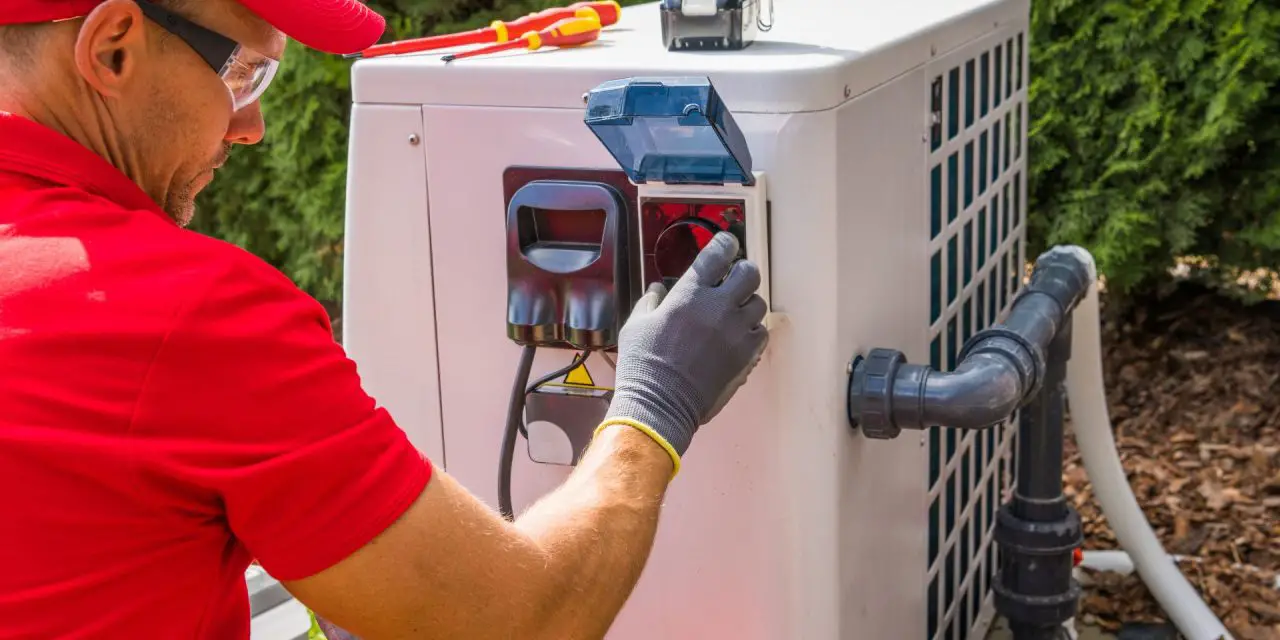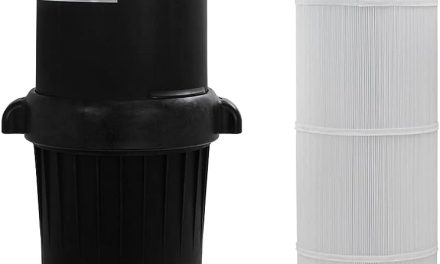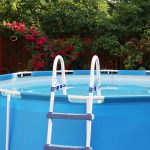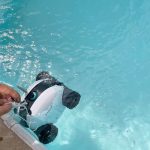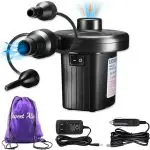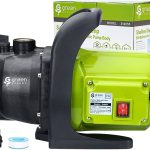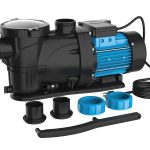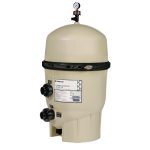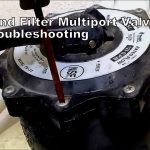Grounding a pool pump involves connecting the pump’s electrical system to the ground to prevent electrical current from moving towards people, pets, or equipment. To do this, an electrician will connect the pool equipment to the electrical panel, which will supply power, and then connect this system to the ground through a ground-fault circuit interrupter (GFCI) breaker.
Pool bonding and grounding are crucial for safety to ensure that electrical current flows safely away from the pool area.
Understanding Electrical Bonding And Grounding
Grounding a pool pump is crucial for ensuring safety and preventing electrical hazards. Without a grounding system in place, there is a risk of electrical current flowing through people, pets, or pool equipment instead of dissipating into the earth. Electrical bonding and grounding play a vital role in pools because they help redirect and disperse electrical current, reducing the chances of electric shock or damage.
By bonding metal components and properly grounding the pool pump, you create a path for the current to follow, protecting everyone around the pool area. It is important to understand the risks associated with not having a grounding system and to take the necessary steps to ensure the safety of your pool and its users.
Equipment Needed For Grounding A Pool Pump
To ground a pool pump, you will need specific equipment. One essential item is a pool bonding kit, which helps create an electrical bond between various metal components of the pool. Additionally, a ground fault circuit interrupter (GFCI) replacement plug is necessary to ensure the pump is protected from electrical faults.
Finally, a pool electrical panel box is required to house and control the electrical connections for the pump. By using these pieces of equipment, you can safely ground your pool pump and minimize the risk of electrical hazards. Grounding is crucial as it prevents electrical currents from moving towards people, pets, or equipment, ensuring everyone’s safety.
Steps To Ground A Pool Pump
Assessing the current grounding system is the first step in grounding a pool pump. By evaluating the existing setup, you can determine if any adjustments are needed for safety. Next, installing a GFCI replacement plug is crucial to protect against electrical faults and shocks.
This specialized plug will automatically cut off power in case of a ground fault. Afterward, connecting the pool bonding kit is essential. This kit ensures that all metal components in and around the pool are electrically bonded together, minimizing the risk of electric shock.
Lastly, installing a timer for the pump allows for efficient and convenient operation, saving energy and prolonging the pump’s lifespan. Following these steps will help ensure a properly grounded pool pump, providing a safe and enjoyable swimming experience.
Bonding Metal In A Pool
Grounding a pool pump is essential for safety reasons. Bonding metal elements in a pool helps to create a path for electrical currents, redirecting them to the ground and preventing potential hazards. Without proper grounding, the pool equipment or even individuals in the pool could become conductors of electricity.
This can lead to dangerous situations where electrical currents flow towards people, pets, or equipment instead of safely dispersing into the ground. By bonding metal elements in a pool, such as the pump and other metal parts, the risk of electric shock or other electrical accidents is significantly reduced.
Therefore, it is crucial to prioritize bonding metal in a pool to ensure a safe and secure swimming environment for everyone involved.
Maintaining The Grounding System
Grounding a pool pump is essential to ensure safety and prevent electrical hazards. Regularly checking the grounding system is crucial to maintain its effectiveness. Without a proper grounding system, electrical current may flow towards people, pets, or equipment instead of moving away and towards the earth.
This can pose a risk of electric shock. Troubleshooting common issues with the grounding system is important to identify any faults or deficiencies. By addressing these issues promptly, you can ensure that the pool pump is properly grounded and functioning correctly.
Remember, a well-maintained grounding system is vital for the safe operation of your pool pump and the overall safety of everyone using the pool.
Final Tips For Safety And Efficiency
Grounding a pool pump is essential for both safety and efficiency. One important aspect is hiring a professional for this task. Without proper grounding, the risk of electrical current moving towards people, pets, or equipment increases. If a grounding system is not in place, harmful electricity may not dissipate into the earth as intended.
By hiring a professional to handle the grounding process, you ensure that all necessary safety measures are taken, minimizing the potential for accidents or damage. It’s crucial to follow best practices to maintain a safe and efficient pool pump, and grounding is a key component of that.
So, don’t overlook the importance of professional assistance when it comes to grounding your pool pump for optimal safety and efficiency.
Frequently Asked Questions On How To Ground A Pool Pump?
Is It Necessary To Ground A Pool Pump?
Grounding a pool pump is necessary because it ensures safety by preventing electrical current from moving towards people, pets, or equipment instead of moving away and to the earth. To ground a pool pump, an electrician connects the pool equipment to the electrical panel, which is then connected to the ground through a ground-fault circuit interrupter (GFCI) breaker.
Grounding your pool equipment is essential for maintaining a safe swimming environment.
How Do You Ground Pool Equipment?
To ground pool equipment, an electrician will connect it to the electrical panel, which will connect to the ground via a ground-fault circuit interrupter (GFCI) breaker.
Does My Above Ground Pool Pump Need To Be Grounded?
Yes, your above ground pool pump needs to be grounded to ensure the safety of people, pets, and equipment.
Conclusion
Grounding your pool pump is crucial for the safety of individuals, pets, and equipment. Without a proper grounding system in place, electrical currents can potentially harm anyone or anything that comes in contact with the pool. By connecting the pool equipment to the electrical panel and utilizing a ground-fault circuit interrupter (GFCI) breaker, you can ensure that any electrical current is safely directed towards the earth rather than towards people or equipment.
Pool bonding and grounding provide an extra layer of protection and minimize the risk of electric shocks or other electrical hazards. It is essential to hire an electrician to handle the grounding process to ensure it is done correctly and in compliance with safety standards.
Prioritizing the grounding of your pool pump is a responsible step to take in maintaining a safe swimming environment for everyone involved.

